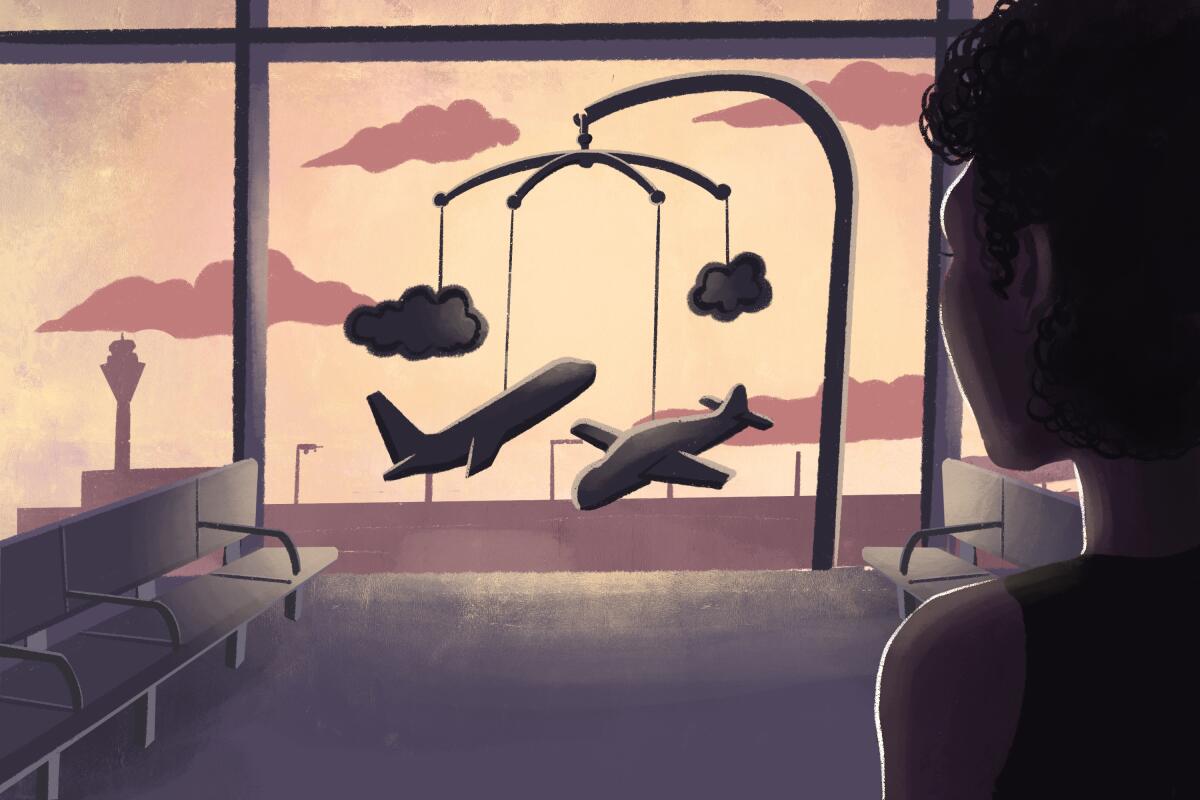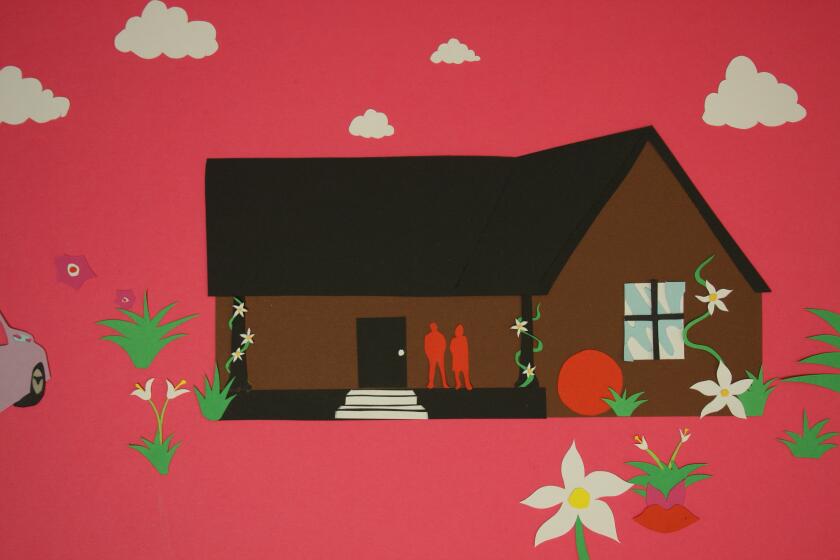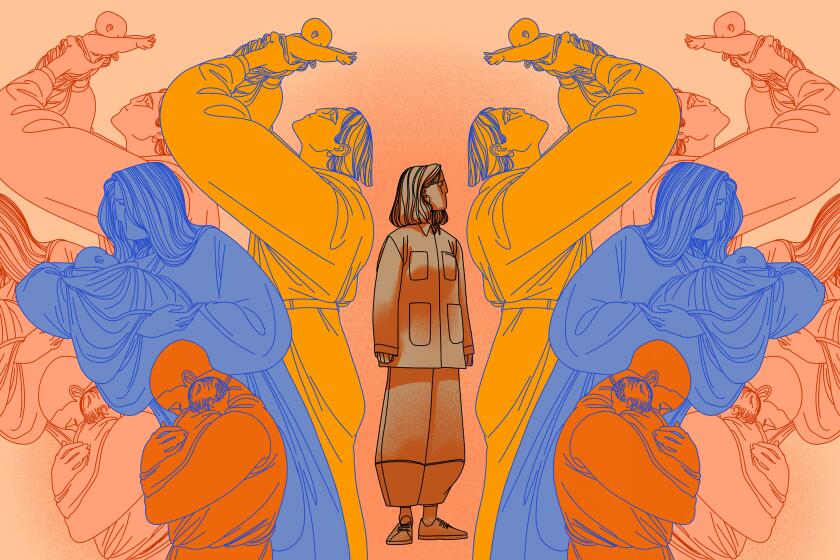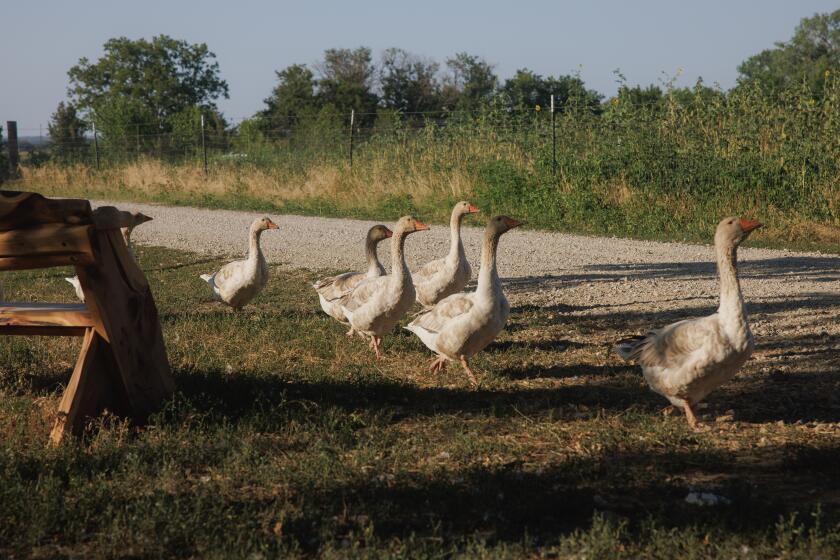Op-Ed: Being child-free lets me live my most authentic life

When I was a young married twentysomething in the Midwest, I thought a womanâs role and joy in life was motherhood. It wasnât a matter of if, but when I would step into my role of birthing babies and raising them. But life took many turns, including separating from my husband and finding passion in my career.
This calibration away from the straight-and-narrow gave me space to consider what I prefer to do in this life as opposed to the âshouldsâ set before me by the church, gender roles and society.
âShouldsââ that insist that my body primarily be a means of reproductive labor. Assumptions that my greatest good can only be realized in procreation. âShouldsâ that couldnât have been further away from my values of community, my identity as a queer woman and my own concerns about bringing another Black body into a country that doesnât feel we matter. My decision to be child-free was a result of years of thinking through how to live my most productive life.
Since society doesnât hold much value in women who donât procreate, I will always have to navigate the question of âwhat happened.â Rarely do I get affirmation for my life decision, the way my friends do when they announce their pregnancies. And often Iâm made to feel that my decision is mistaken, selfish or immature.
For me, a mixed-race child, my ties to racial identity were severed when I entered the foster system unaware of the ethnicities that made my brown skin.
I do question how Iâll maintain connection and support in my older years. I hate never being able to witness what the combined DNA, values and intentions of my partner and I could look like in a child. I wonât be able to tap into the beauty of an adult relationship with a daughter. I may have waves of grief well into my old age. But ultimately, these things donât outweigh what I find to be the benefits of being child-free.
The most fulfilling benefit is having more time, space and emotional energy to build community â something undervalued in our nuclear family-obsessed culture. I can devote myself to supporting new mothers by cooking meals in the weeks after birth, cheering on the local high school soccer team, offering the spare room in my apartment to a new grad exploring a summer internship in the city, being another listening ear when someone feels their parents might not understand.
I have sought out a community of people who, like me, reveled in the richness of a child-free life, and also celebrated the relationships they did have with children. My identity as an âauntieâ is aligned with how I viewed myself as a child-free woman. Rich Auntie Supreme became the moniker I used online to find âmy people.â
My people are those who are child-free by choice. My people have surprisingly included an expansive community, with the mothers who honor and celebrate the âauntiesâ in their lives, people who once tried to have children but never got the chance yet are finding joy in where they are.
As the daughter of a mother with a disability, I was born into a caretaker role. And for that reason, it is the caretaking that weighs heaviest for me. I fell into a career as a nanny in my early adulthood. In these roles I have felt levels of joy and purpose that Iâd imagine drive people to want to be a parent. But I also have felt levels of exhaustion I donât want to encounter again.
âThe Lost Daughterâ shows not all women want to be mothers. Iâm hungry for more of these stories.
There are various reasons why someone would be child-free by choice. Some hold the political idea that with overpopulation and resource shortages, being child-free is the ethical choice. For others, it is rooted in the desire for more mental and physical freedom than a parent might have. Iâve met those who feel being child-free will break cycles of abuse or illness within their biological families. Some, who have wanderlust, feel that a child would complicate their desire to see more of the world. And then there are those who simply donât have the interest in taking on the long-term caretaking role that being a parent truly is.
For me, being child-free means having the right to do what so many women before me didnât get the chance to do â to live a life I choose.
Rachel Cargle is an author, activist and founder and president of the Loveland Group and the Loveland Foundation. @rachel.cargle
More to Read
A cure for the common opinion
Get thought-provoking perspectives with our weekly newsletter.
You may occasionally receive promotional content from the Los Angeles Times.












